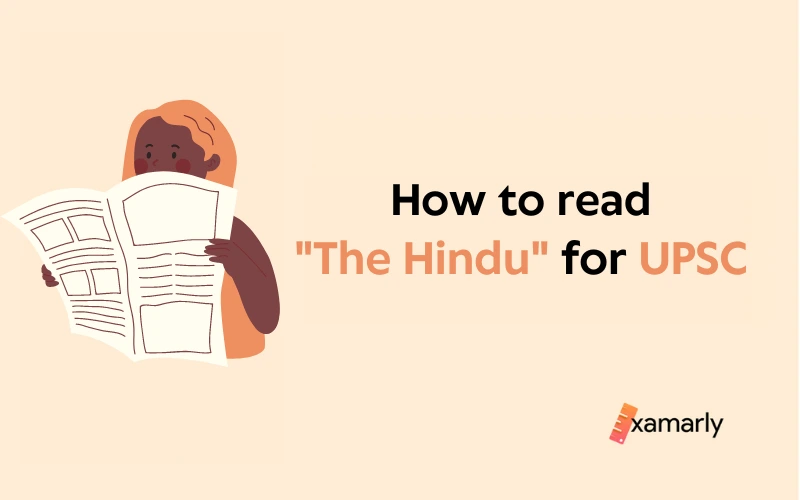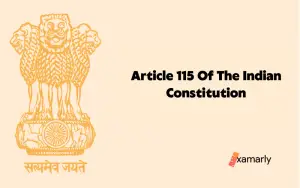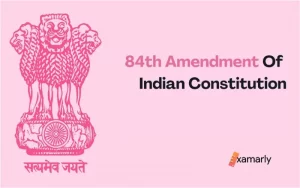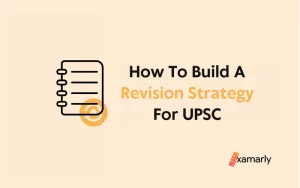As current affairs are the backbone of UPSC, it is essential to prepare wisely. Many aspirants ponder on how to read The Hindu for UPSC current affairs and that too in minimum time. Whether the aspirants are at the beginner level or at an intermediate level, the importance of reading newspapers is known and understood by them, as UPSC is a tough exam.
Due to its high level of complexity and competency, “The Hindu” newspaper is the most recommended newspaper and is also a suggested tip by UPSC toppers. One can go either for a print version or a digital version for the full-fledged preparation of the UPSC IAS Exam with regard to current affairs.
If you want to know how to read “The Hindu” to cover current affairs effectively in minimum time so as to ace your UPSC CSE preparation, then you must definitely give this article a thorough read.
Through this blog, you will learn:
- The manner in which “The Hindu” newspaper contributes to the preparation for UPSC.
- Some tips and tricks to cover the newspaper to ensure maximum output in minimum time.
- The do’s and don’t’s to keep in mind while covering “The Hindu”
- Importance of PDF files and news summary videos as part of UPSC preparation strategy.
- Relevance of Reading "The Hindu" for UPSC
- Tips to Read "The Hindu" in Minimum Time
- Can Aspirants Clear UPSC Without Considering “The Hindu” Newspaper?
- Is Relying on PDF Files for Current Affairs Recommended?
- Significance of Current Affairs through News Summary Videos
- Conclusion
- FAQs on how to read "The Hindu" for UPSC
Relevance of Reading “The Hindu” for UPSC
Though there are many newspapers available, it is important to go through “The Hindu” newspaper for current affairs due to the following factors listed below:
- News and opinions are well distinguished.
- Priorities are given to the areas of national concern.
- You will get the best critical analysis of government policies.
- Contains an editorial section that covers important topics via a comprehensive approach. In short, it provides a key insight into important issues.
Tips to Read “The Hindu” in Minimum Time
At times a lot of candidates seek an answer to the question “How to read the Hindu for UPSC in the least amount of time?” to cover current news with ease. So for this, you don’t have to go through each and every piece of news in the newspaper.
While going through the newspaper, focus on the important areas and skim through not-so-important sections of the paper. Initially, you might take extra time in filtering the relevant information but with the daily exercise of reading the newspaper, you can do so in lesser time. Even average students can follow this tip for assured success.
Moreover, if you follow these tips religiously, you will definitely come out with flying colors on your first attempt itself. Even working professionals can follow these tips and excel in the UPSC examination.
Remember, only spend 1.5 to 2 hours per day (or less) as you have to cover other subjects as well.
Relatable posts:
- How to Crack UPSC in First Attempt?
- UPSC Preparation for Working Professionals
- How Many Hours of Study is Required for UPSC?
Steps to Read “The Hindu” While Preparing for UPSC
11 effective tips are mentioned below that will aid you in how to read the Hindu for UPSC current affairs preparation:
- Page 1 or Front Page: Don’t waste much time on the front page of “The Hindu” newspaper. Just skim through the news headlines (once) on the 1st page of “The Hindu” newspaper.
- Pages 2-5: Regional news that varies from one city to another is usually present on pages 2-3 whereas pages 4-5 contain state-specific news. However, because these are not so important in the UPSC exam, feel free to omit these.
- Page 7: Emphasize more on national news. It will benefit you in your test if you devote some time to studying the decisions of the high courts and the Supreme Court. Also, emphasize more on parliamentary debates and Government orders and their policies. For such information refer to page number 7 of “The Hindu” newspaper.
- Editorial Section (Usually Page 8): The editorial page of “The Hindu” is the most crucial part of the newspaper. This section is usually present on the 8th page of “The Hindu” newspaper. Read the two editorials thoroughly that are given in the left margin of the newspaper.
- Page 9 or the Perspective Page: To have a different view on the current issue go through the perspective page of the newspaper which is usually the 9th page of “The Hindu” newspaper. This page contains the articles referred to as “comments” by “The Hindu”. The author who is not affiliated with the publication’s editorial board pens their opinions in this section that provides a different view angle of the current issue.
- Page 10-11: These pages usually contain the general news, so there is no need to get bogged down in all the political news, or issues. Just have a basic understanding of what is happening.
- However, focus on political news or issues in regard to the Constitution of India, and legislative and administrative processes.
- Page 12: Give some time to the topic of International relations (if something major happens) as well as it is a part of the UPSC Syllabus. To read the world news refer to page 12.
- Pages 13-14: Put your attention towards socio-economic news or issues as well. Read in-depth about the issues related to health, women’s education, or any policy affecting vulnerable sections of society. Go through the business-related issues as well. Refer to pages 13-14 for such issue-related news.
- Sports Page: Go through the sports section of the newspaper as though not many questions are asked from this section but in UPSC Prelims 2021 questions from this section have appeared.
- Keep notes: Try to make short notes of important news and events that may come in handy during revision.
Also Read: A Comprehensive Guide On How To Study The Hindu Newspaper Editorial For UPSC CSE
Sections to Focus on:
The following topics need to be prepared in order to give you the edge:
- National and international topics or issues.
- Really in-depth analysis of current issues. It could be an article in the Opinion or Editorial section.
- Current issues related to geography, natural disasters, the environment, and climate change.
- News and editorials related to socio-economic issues, women’s issues, health issues, etc.
- Constitution, constitutional amendments topics, etc.
- Read the topics related to governance, government policies, and government schemes.
- Not only Supreme Court and High Court verdicts, but also relevant articles related to multilateral forums, diplomatic relations or topics with reference to international law, and many more.
- Topics or news related to budget, poverty, employment, the World and Indian economy, and national and international security.
Sections Not to Focus on:
While covering the current affairs from the newspaper for IAS preparation, the following topics don’t need your attention:
- Political issues.
- Local news.
- Avoid reading about meaningless details in the news, such as sports news or sports-related titles, honours, media celebrities, etc.
Can Aspirants Clear UPSC Without Considering “The Hindu” Newspaper?
The answer is obviously yes.
You may refer to other newspapers (like “Indian Express”) as well or can opt for other alternatives like weekly or monthly magazines, apps or websites, and many more to read current affairs effectively for UPSC.
All the available substitutes are good that can be considered for preparing current affairs for UPSC. The only thing that should be kept in mind is to keep the resources limited and spend time revising again and again, instead of going through multiple sources which will slow down your preparation process.
Is Relying on PDF Files for Current Affairs Recommended?
News is a very important part of a UPSC aspirant’s preparation strategy. It helps them to keep up with what’s going on in the world and how it affects us.
However, there are many people who don’t like reading newspapers and prefer the use of the internet. This is because they feel reading newspapers is too time-consuming and boring.
But you should never skip reading newspapers as it helps you to keep yourself updated with the latest happenings around the world. In addition to that, newspapers help you to improve your vocabulary and grammar skills as well as develop your critical thinking capabilities.
Although you might think of current affairs PDFs as substitutes for reading newspapers, they’re just supplements.
The problem with current affairs PDFs is that they don’t contain all the relevant information that you need in order to make up your mind about an issue or event. You may think that reading a quick summary will do the trick but often it doesn’t.
All too often these summaries only scratch the surface of what’s actually going on and give little insight into why things happened. However, newspapers give you a broad perspective on what’s happening around the world in a single glance.
Hence, you should not skip newspapers as PDFs are crisp and usually don’t contain all the relevant information. But it does not mean that you should not consider PDFs or monthly magazines as they too will help you with revision.
Significance of Current Affairs through News Summary Videos
In the age of online platforms, video is the most engaging and powerful way to learn. The daily current affairs/newspaper summary videos are not meant for everyone.
If you are able to read through a topic in thirty minutes from the newspaper then there is no need to spend an hour listening to a video about it. You can review the text and understand it better.
If only you are unable to understand the given topic then only watch daily news analysis videos for complex topics.
If you have time constraints then this is definitely going to help you as it will cover the entire newspaper in just a few minutes which otherwise would take weeks of reading.
Check out the linked article to figure out the best online platforms for UPSC preparation.
Conclusion
Though all the sources cover most of the relevant information linked to the UPSC, it doesn’t imply running behind multiple sources to study everything under the sky.
Instead, for the last months before the exam, you must maintain a timetable and revise what you have studied from the limited resources so that you can hold a grip on the knowledge you gained. It is equally essential to stay motivated during this time. This way, you can prepare for UPSC without coaching.
If you have limited time and are unable to understand what to read and what to avoid in “The Hindu” newspaper, take the help of Examarly. This platform provides you with important headlines and their corresponding page numbers from “The Hindu” and some other newspapers every day.
Also, check out the linked article to learn about How to Prepare for UPSC in 3 Months Effectively.
Hope this blog helped you with the tips you were looking for, for your UPSC Civil Services exam preparation. Go, get started.
FAQs on how to read “The Hindu” for UPSC
What newspapers to follow to cover Current Affairs for UPSC?
“The Hindu” newspaper and “Indian Express” newspaper are worth reading to cover current affairs for IAS exam preparation.
Is reading “The Hindu” enough for UPSC?
No, reading “The Hindu” alone is not enough for UPSC. It’s important to have a well-rounded preparation including multiple sources.
How much time does it take to read “The Hindu” for UPSC?
The time required to read “The Hindu” for UPSC preparation can vary depending on the individual’s speed and depth of understanding required.
Can I crack UPSC without any newspaper reading?
No, cracking UPSC without reading newspapers is difficult as current affairs form a significant part of the UPSC syllabus.
How should one read “The Hindu” effectively for UPSC?
To read “The Hindu” effectively for UPSC, one can prioritize reading articles on national and international issues, focus on editorials, and practice answering questions based on the information read. Additionally, supplementing with other sources for a comprehensive understanding is also recommended.






